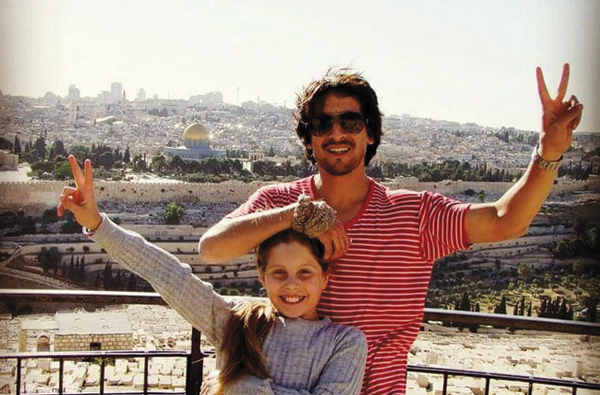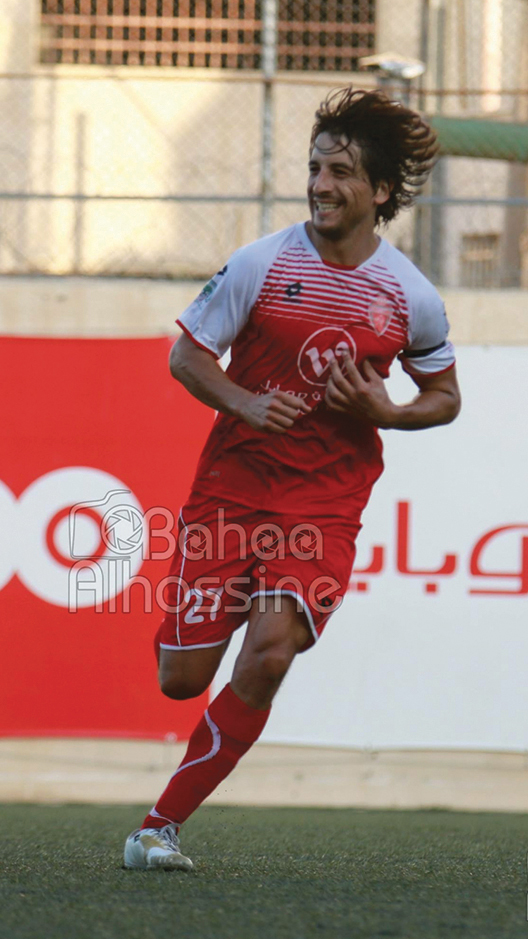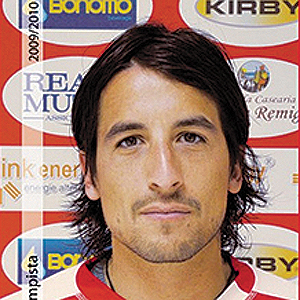
On July 25, 2016, the day of my 35th birthday, I was having a late breakfast at Zamn Restaurant in Ramallah with my friend and Palestinian national soccer team player Abdallah Jaber, when my mobile phone rang. It was Kifah Al Sharif, the president of the Ahli al Khalil (literally: the family of al-Khalil/Hebron) soccer team with whom I had been playing until just a few days earlier. He was calling from Gaza and complained that five team players had been refused entry into Gaza by Israeli security personnel at the Erez border crossing that morning. One of them happened to be my breakfast mate. The super cup final game was scheduled to take place the next day in Yarmouk Stadium, and the contenders were the team from Khan Younis and Ahli al Khalil.
“How can we play tomorrow with only ten players?” was Mr. Kifah’s main concern. “Listen,” I said, “legally I am still under contract with your club until July 31, 2016. So, if you make the necessary arrangements with the Palestinian Football Association (PFA), I can cross tomorrow morning and play the game.” “That’s fantastic!” was his reply. “Let me call the general secretary about this, and I will call you back in five minutes; yes, five Palestinian minutes.”
At this point, I should tell you that by the word arrangements I meant both authorization to play and coordination with the Israelis to allow me to get into Gaza.
The next morning I was having coffee with my wife at home when my telephone rang. The screen blinked “Kifah Al Sharif calling.” I knew what it was about before I even answered.
“It’s ready! I spoke with the secretary general. Please go immediately to Qalandiya, there is a driver waiting for you. He will take you to Erez,” Mr. Kifah told me before ending the conversation.
I looked at my wife and said, “Mi amor, I’m going to Gaza. See you tomorrow.”

I will not go into details about our “husband and wife” conversation that morning. We would need a 100-page special edition. Two hours later, I was at Erez border crossing. The Israeli soldier was already holding my passport, looking at the computer screen, trying to find my name. Last name, middle name, nickname, nothing showed in the system. The soldier handed back my passport and said, “You are not in the system, you cannot go to Gaza.”
Immediately, I called Mr. Kifah. “I’m not in the system. Are you sure the PFA made the arrangements for me to go in?” “No,” he replied. “They only gave you permission to play in the game.” I asked, “How am I supposed to play if I don’t have permission to enter Gaza?!”
Telephone calls went back and forth between Mr. Kifah and the PFA. Many futile attempts were made to try to convince the soldiers to let me enter. We were about to give up hope when…
Around 2:00 or 2:30 there was a shift change. The soldier who had previously processed my case left his position, and instead there arrived a sweet, nice person – it is difficult to believe that she can be working in this field. Her name I still remember… I walked up to her, told her my story, begged for her to let me enter, explained the great importance of that particular game, and asked her to please hurry because the game was scheduled to start in two hours.
As she took my passport, she said, “I will try to help you, please wait.” And with that she went up to the offices on the second floor. After 30 long minutes she came back, smiling, and told me, “I have good news: you will be allowed to enter Gaza.”
The joy I experienced at that moment is not comparable to anything, not even to winning the super cup! It took some time before she finished entering my data into the computer. Then she stamped my passport and wished me good luck in the game. The next step was a three-kilometer ride in a tuk-tuk (three-wheeled vehicle) that carried me and four others along with all our bags. It felt like a fenced-in roller coaster: not safe at all, but we laughed and joked during the entire ride.
I arrived at number 444 border control, the site of the funniest moment of the entire adventure: The Palestinian security policeman didn’t know I was coming, so he told me, “I am sorry, but you are not in the system, so you cannot enter Gaza.”
“Are you kidding me?!” I asked. He began to tell me all about procedures and how nobody can enter without the approval of the Gazan authorities… To make a long story short, after a couple of phone calls, I was allowed to continue on my way to Yarmouk Stadium. I arrived exactly two minutes before the referee’s whistle announced the start of the game. There was just enough time to go to the dressing room and change into my soccer uniform before I played the game. It was my final game as a professional player, the game that ended a career of 16 years, 12 of which I had played for the Palestinian National Team. Destiny wanted me to retire from professional football in Gaza.
We won the game 1-0. But believe me, on that day the result was not important at all. Later that evening, we made an official visit to say hello to Mr. Ismael Haniyyeh. When we had dinner with the players of the two teams and sports and political authorities, the anchorman started his speech by recounting what I had accomplished that day. To the clapping and cheering of everyone, he called it a victory for all Palestinians: “Today, the occupation was defeated by Roberto!”
For sure, this was one of the top three moments during our five years of living in Palestine. But now, nine months later, I am writing this from Santiago, Chile. Israel did not grant me a renewal of my visa.
» Roberto Kettlun is a Palestinian-Italian soccer player. Having started as a youth player for the Universidad Catolica club in Chile, he played professional soccer with clubs in Chile (Club Palestino, Unión Española), Greece (Skoda Xanthi, super league), and Italy (Brindisi, Teramo, Casarano) before he joined Hilal Al Quds (Palestine, 2012–2015) and Ahli Al Khalil (Hebron, Palestine, 2015–2016). He played on the Palestine National Team (2002–2012) and was a sports consultant with Bank of Palestine (2015–2017). Roberto is the proud father or four “lovely and sometimes naughty” children. His two boys were born in Ramallah.


